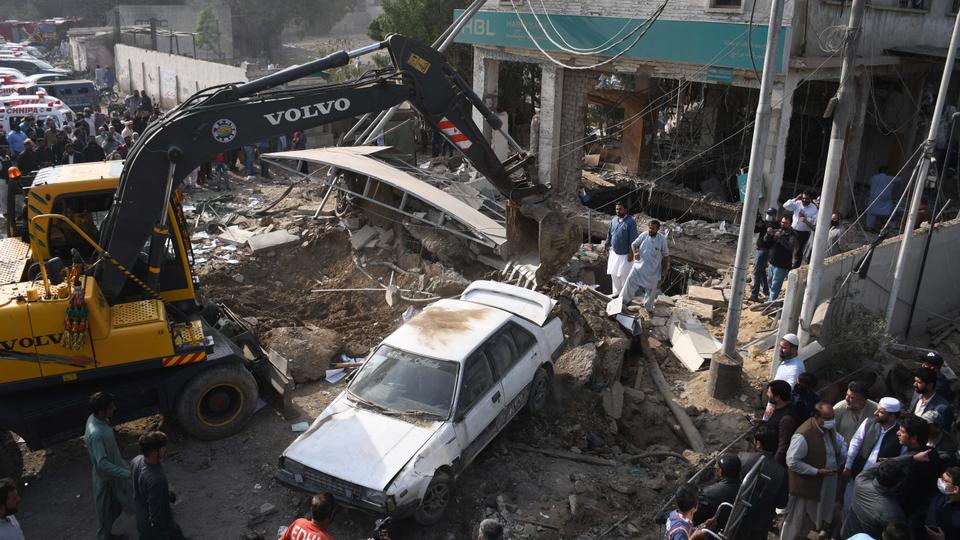A powerful gas explosion in a sewage system in a southern Pakistan city has killed at least 16 people and injured 11 others, police and health officials said.
The explosion occurred outside a building in an industrial district of Karachi, which serves as the country’s commercial capital, causing the roof and walls to collapse.
Health Minister for southern Sindh province, of which Karachi is the capital, Dr. Azra Pechuhu told reporters that at least 16 people were killed and 11 injured in the blast.
The deceased included the father of a ruling party parliamentarian, Alamgir Khan.
All 11 people being treated for injuries are in critical condition, he added.
According to the initial investigations, the police said, the blast is believed to be the result of leakage in a nearby gas pipeline. Further investigations to ascertain the cause are underway, the police added.
Footage aired on local broadcaster Geo TV showed rescuers scrambling amid the rubble to pull out bodies and injured, taking them to nearby ambulances.Several vehicles parked outside the building were completely or partially charred as broken glass, metal pieces, and blood-soaked shoes and caps and clothes were strewn at the site.
Authorities said that the building, which also housed a private bank, was illegally constructed on a drainage line.
Industrial accidents are common in the South Asian nuclear state, where safety standards are lax.
Many sewage channels in the city have been covered, mostly illegally, by constructing concrete structures over them.
Turkiye offers condolences
Turkiye’s Foreign Minister Mevlut Cavusoglu that will travel to Pakistan for an extraordinary meeting in Pakistan’s capital Islamabad for the Organisation of Islamic Cooperation (OIC) on the humanitarian crisis in Afghanistan said he is saddened of the blast.
“We wish God’s mercy on those who lost their lives in the explosions and a speedy recovery to the injured, and we convey our condolences to the friendly and brotherly people and Government of Pakistan,” he added.


Comment here